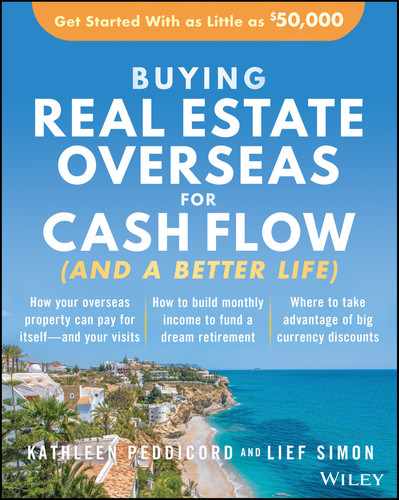31
Remember the Fundamentals
When we arrived in Ireland in 1998, the standard net return from a rental property was 2% or less. The country was a decade into its Celtic Tiger economic boom, which had been fueled by two things. The first was American businesses setting up shop in Ireland to take advantage of low corporate tax rates and hiring incentives being offered by the government. The second was real estate.
Indeed, we were in Ireland for the first reason. We'd made the move to open an office for a U.S. publishing company wanting in on the Irish Investment and Development Agency's 10% tax.
All the foreign business activity created an employment boom. For the first time in the country's history, young Irish were able to leave their parents' houses before they got married. They could afford to live on their own or with roommates. This phenomenon created an unprecedented housing demand. Developers bought land from farmers to build housing estates, and the farmers gave some of those windfall land profits to their kids so they could buy houses. A lending industry emerged. Mortgage broker offices popped up on the street corners of every town and village across the country.
All of Ireland were buying and selling property either for their own uses or, eventually, as investments. The whole of the country watched prices rise dramatically year after year after year and felt compelled to get in on the game. No one imagined an end to the cycle.
It was a house of cards that eventually collapsed completely. One Irish friend who jumped in at the late stages of the boom and bought a house in 2006 to live in with his family has been upside down in the mortgage for that house for more than a decade. At least he's been able to keep up with the mortgage payments. Many pre-2008 Irish buyers have not been so fortunate.
Hardest hit were those who'd bought for investment. So many of these properties were taken back by banks, which had lent as much as 110% of the purchase price, the extra 10% to cover closing costs.
Every Irish investor at the time bought with the expectation that they'd make their return from appreciation. They ignored the fundamentals of property investing and abandoned common sense, buying into the going belief that property prices would continue up indefinitely.
It wasn't only the Irish infected by this disease pre-2008. We met an American property investor back then who bragged to me that he controlled $2 million worth of property. He had made initial payments of $5,000 on eight $250,000 condos. His plan was to resell one or two condos at a time to come up with the next payment due on the rest. He'd created a leveraged ladder that he believed would turn his $40,000 into a small fortune.
Then came the crash of 2008. The guy couldn't sell his condos for a reasonable price or at all. He lost all eight properties, along with his $40,000. Like all those Irish investors, he'd counted on perpetually appreciating market values. That's La La Land.
The key fundamental that too many property investors ignore or maybe aren't aware of, both pre-2008 and, alas, today, is that a rental property should generate enough rental income to give you positive cash flow and a decent net yield. Those are the two critical requirements for any successful rental investment. Do not buy a rental property for any reason other than because you are confident both of those things are going to play out.
We look for a net yield from a rental investment of 5% to 8%. We do not make a purchase unless we believe, based on reliable market data, that we can realistically expect a net return of at least 5%. If a property produces less than a net of 5% a year, we reevaluate to understand what has shifted in the market and, depending on the value of the asset, can consider cashing out so we can put that capital to work elsewhere. If a property produces more than 8% net a year, we count ourselves lucky but understand that the situation won't last. You net more than 8% from a rental only as a result of some market distortion that sooner rather than later will return to the mean.
If you're earning net cash flow of 5% to 8% a year from a rental, that investment is solid. Maybe you're realizing capital appreciation, as well, but trying to predict value growth is speculation. Buying for positive cash flow is building wealth.
